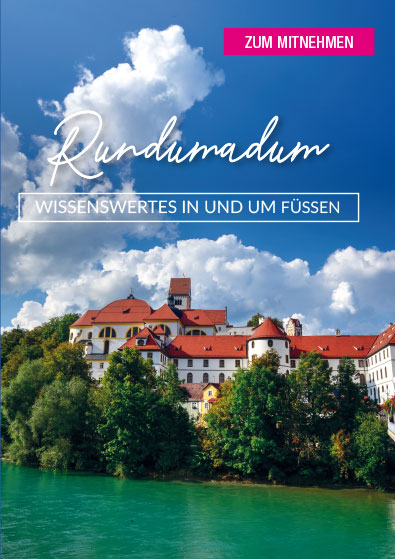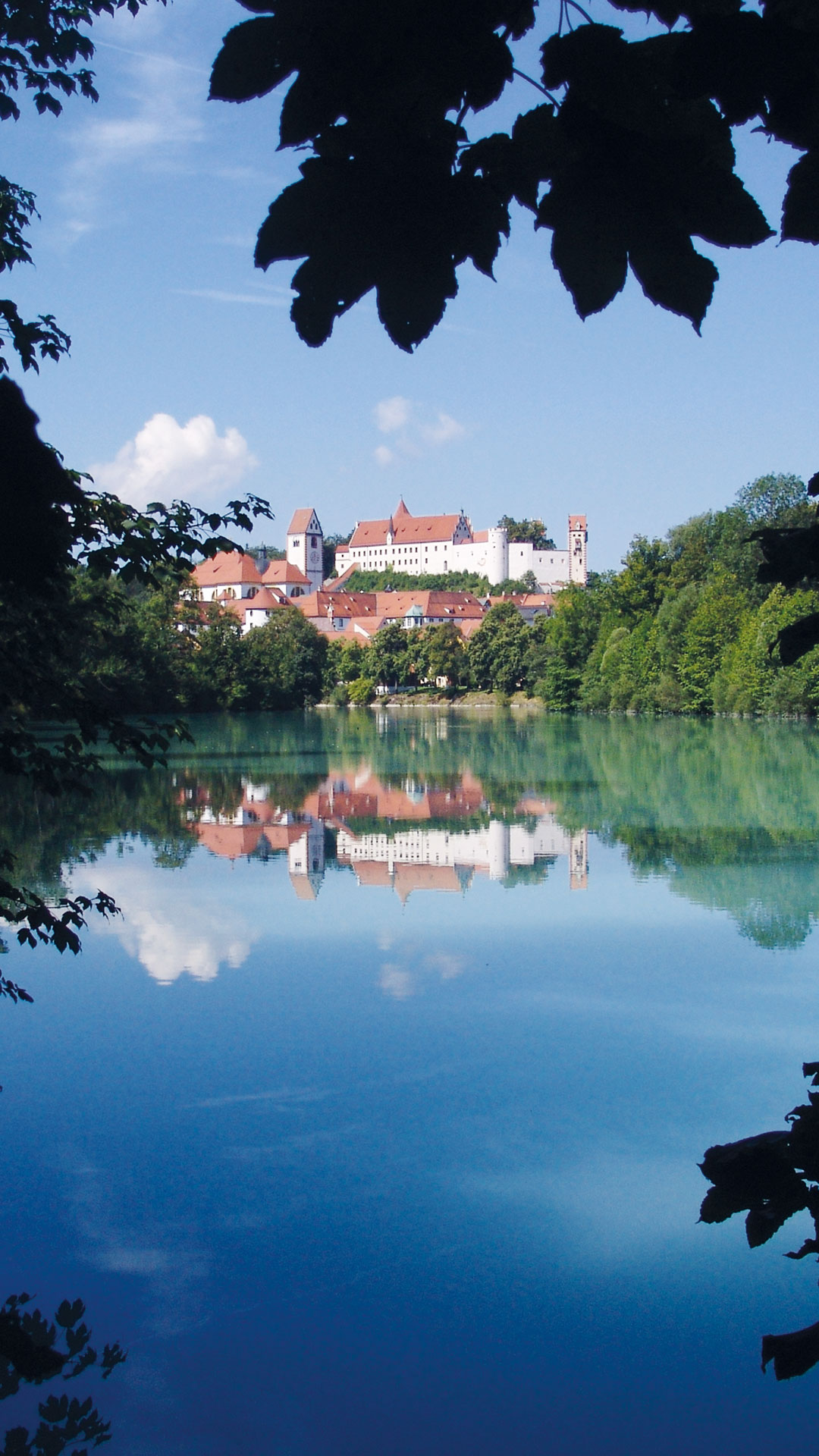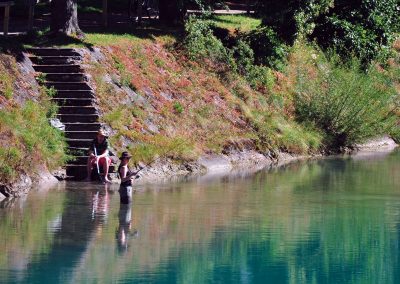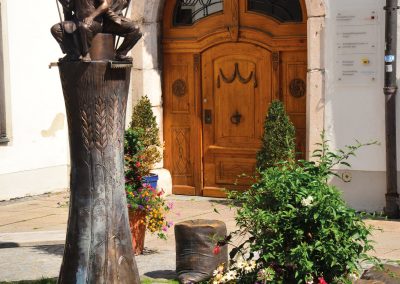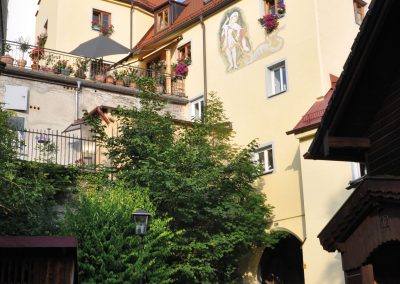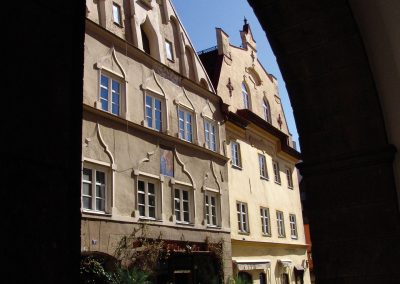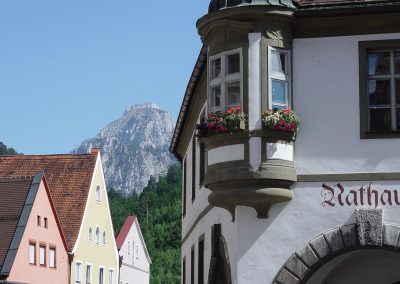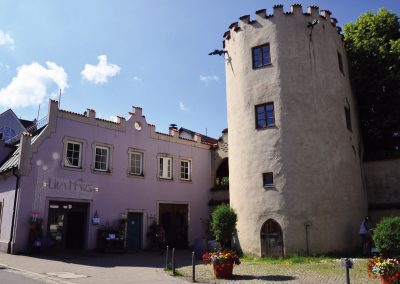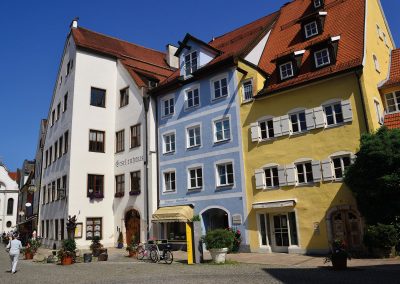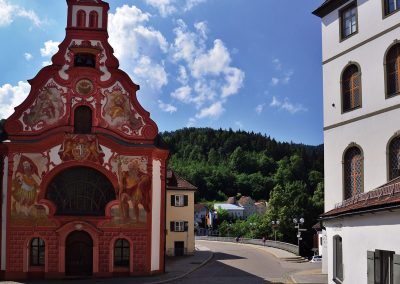A city of 2000 years
long history
Fuessen received its town charter over 700 years ago. However, the origins of the settlement date back to Roman times, when the Via Claudia Augusta was built from northern Italy to Augsburg and a section of the third Roman legion was stationed on the Fuessen castle hill in the 3rd century. Today the Via Claudia Augusta in Fuessen meets the German Alpine Road and the Romantic Road. Fuessens location on this north-south link and at Fuessener Enge, the breakthrough of the Lech from the Alps, was also significant for the spread of the Christian faith. The St. Gallen wandering monk Magnus was sent to this place in the 8th century. After Magnus’ death his cell fell into disrepair and in the middle of the 9th century the Benedictine monastery St. Mang was founded on the initiative of the Augsburg bishop. This shaped the Fuessener Land as the centre of faith, culture and economy. From 1313 onwards, the monastery and town, which had already been under municipal law since 1286, were under the jurisdiction of the Bishops of Augsburg. The sovereigns extended the Hohe Schloss to become their summer residence.
In the 15th/16th century Fuessen developed into an important trading centre and experienced its heyday when Emperor Maximilian I and his court were in Fuessen almost 40 times. The Thirty Years’ War cut deep into the development. It was not until the end of the 19th century that Fuessen experienced an upswing again with the foundation of the “Mechanische Seilerwarenfabrik” and the construction of the castles Hohenschwangau and Neuschwanstein of the Bavarian kings Maximilian II. and Ludwig II. and the resulting tourism. Today, the city is one of the biggest tourist destinations in the Allgaeu with around 1.4 million overnight stays per year.
The city coat of arms, which has appeared in documents since the city uprising at the end of the 13th century, is not an original Fuessen invention. Three-leg coats of arms have been in use throughout Europe since ancient times, for example in Italy (Sicilian coat of arms “Trinacria”) and on the Isle of Man. In Fuessen the coat of arms was probably adopted as a so-called “talking coat of arms”, which directly reflects the place name as a picture. Around 1300 the name “FVEZEN” was interpreted as “feet” – but this meaning is based on a misinterpretation.
There are various explanatory approaches to the origin of the name “Fuessen”. There is documentary evidence of a Roman military camp called “Foetibus” or “Fotensium” on today’s Fuessener Schlossberg from the 4th century. Both terms could have been derived from Latin “fotes” or “fontes” (sources) and point to the Lechfall (= spring source).
Another possible starting point for the name development is the documentary mention of the Lech gorge at Lusaltenfelsen (today Lechfall) as “Fauces” (Latin: gorge) in 898.
The coat of arms of Fuessen
The coat of arms of Fuessen
The city coat of arms, which has appeared in documents since the city uprising at the end of the 13th century, is not an original Fuessen invention. Three-leg coats of arms have been in use throughout Europe since ancient times, for example in Italy (Sicilian coat of arms “Trinacria”) and on the Isle of Man. In Fuessen the coat of arms was probably adopted as a so-called “talking coat of arms”, which directly reflects the place name as a picture. Around 1300 the name “FVEZEN” was interpreted as “feet” – but this meaning is based on a misinterpretation.
There are various explanatory approaches to the origin of the name “Fuessen”. There is documentary evidence of a Roman military camp called “Foetibus” or “Fotensium” on today’s Fuessener Schlossberg from the 4th century. Both terms could have been derived from Latin “fotes” or “fontes” (sources) and point to the Lechfall (= spring source).
Another possible starting point for the name development is the documentary mention of the Lech gorge at Lusaltenfelsen (today Lechfall) as “Fauces” (Latin: gorge) in 898.
More to Discover
Our Categories
Whether nature, culture, old walls or events – there is a lot to discover for young and old in Fuessen and its surroundings.
Fuessen and its attractions
Around the lakes of Fuessen
Monasteries, churches and museums
Experience nature
Mountain hut magic
Events
Do you have any questions or suggestions?
Get in contact with us



